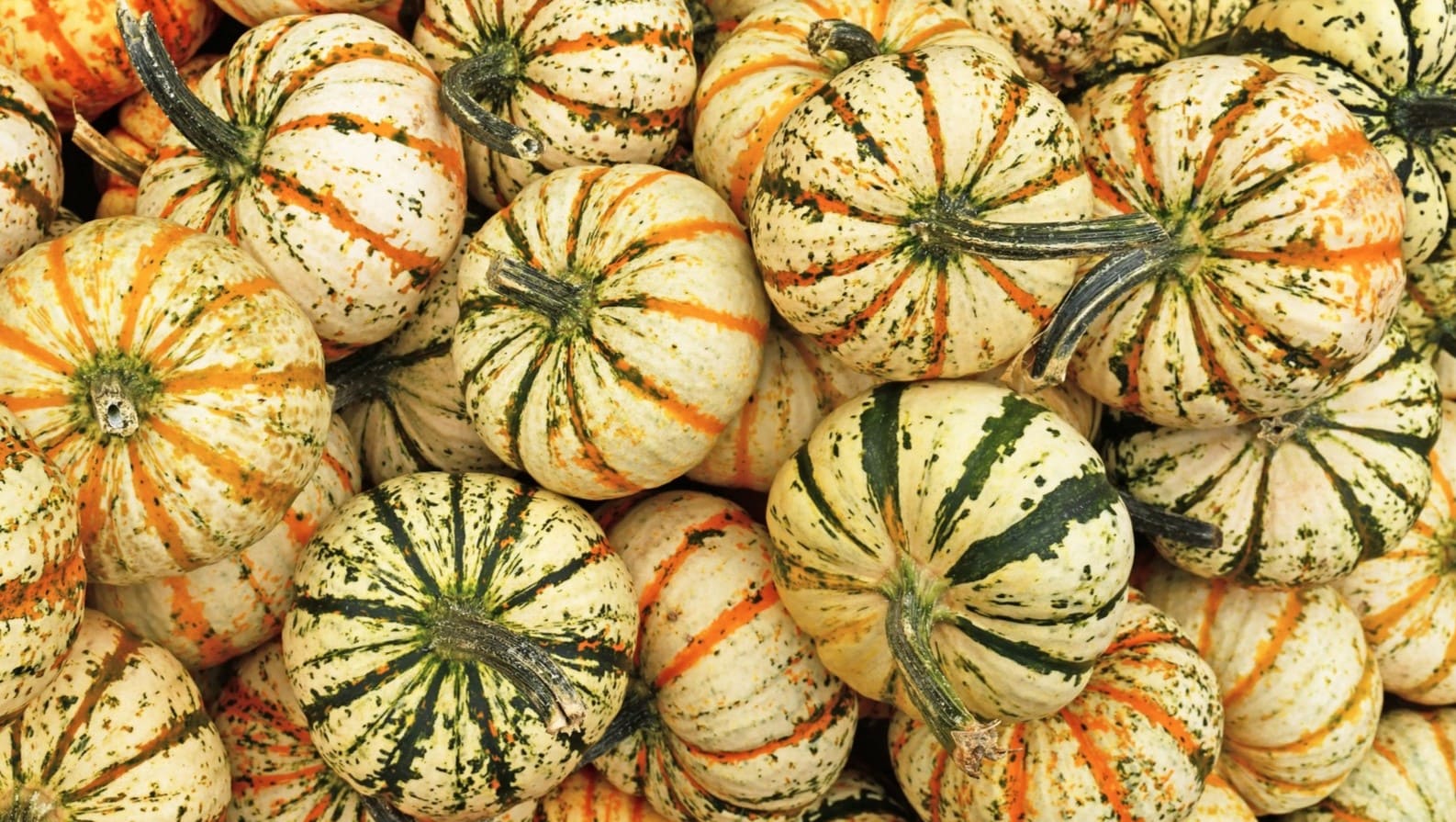
Carnival squash, a colorful and tasty member of the winter squash family, often catches the eye with its vibrant patterns. But what makes this squash so special? Carnival squash is a hybrid of acorn and sweet dumpling squash, offering a unique blend of flavors and textures. Its sweet, nutty taste pairs well with various dishes, making it a versatile ingredient in the kitchen. Rich in vitamins A and C, this squash not only adds a splash of color to your plate but also boosts your health. Whether roasted, baked, or pureed, carnival squash can elevate any meal. Ready to learn more? Let's dive into 20 fascinating facts about this delightful vegetable!
Key Takeaways:
- Carnival squash is a colorful and flavorful winter squash, packed with vitamins and fiber for a healthy diet. It can be enjoyed in various dishes and is easy to grow in your own garden.
- With its vibrant colors and sweet, nutty flavor, carnival squash is a delicious and nutritious addition to any meal. It's rich in vitamins A and C, low in calories, and can be prepared in many tasty ways.
What is Carnival Squash?
Carnival squash is a type of winter squash known for its vibrant colors and sweet, nutty flavor. It's a hybrid of acorn and sweet dumpling squash, making it a unique addition to any meal. Here are some fascinating facts about this delightful vegetable.
- Carnival squash is a hybrid of acorn and sweet dumpling squash.
- It has a hard, thick skin that ranges in color from green to yellow with orange and white streaks.
- The flesh inside is bright orange and has a sweet, nutty flavor.
- Carnival squash is typically available in the fall and winter months.
- It can be stored for several months in a cool, dry place.
Nutritional Benefits of Carnival Squash
Carnival squash isn't just tasty; it's also packed with nutrients. Eating this squash can provide several health benefits.
- Carnival squash is rich in vitamins A and C, which are essential for immune function and skin health.
- It contains dietary fiber, which aids in digestion and helps maintain a healthy weight.
- This squash is low in calories, making it a great addition to a weight-loss diet.
- It provides potassium, which is important for heart health and muscle function.
- Carnival squash also contains antioxidants that help protect the body from damage caused by free radicals.
Cooking with Carnival Squash
There are many ways to prepare and enjoy carnival squash. Its versatility makes it a favorite in many kitchens.
- Carnival squash can be roasted, baked, steamed, or sautéed.
- It pairs well with a variety of spices, including cinnamon, nutmeg, and cumin.
- The squash can be stuffed with grains, meats, or vegetables for a hearty meal.
- Its sweet flavor makes it a great addition to soups and stews.
- Carnival squash can also be pureed and used in pies, muffins, and other baked goods.
Growing Carnival Squash
If you have a green thumb, you might be interested in growing your own carnival squash. Here are some tips to get you started.
- Carnival squash plants need full sun and well-drained soil to thrive.
- They should be planted in the spring after the last frost has passed.
- The plants require regular watering, especially during dry periods.
- Carnival squash is typically ready to harvest in about 80-100 days.
- To check if the squash is ripe, look for a hard skin and a deep, vibrant color.
The Final Scoop on Carnival Squash
Carnival squash isn't just a pretty face. Packed with nutrients, it offers a delicious and healthy addition to any meal. Its vibrant colors and unique patterns make it a standout in both gardens and kitchens. Whether roasted, baked, or pureed, this squash brings a sweet, nutty flavor that's hard to beat.
Beyond its taste, carnival squash is a powerhouse of vitamins and minerals. It's rich in vitamin A, vitamin C, and fiber, making it a great choice for boosting immunity and digestion. Plus, its low-calorie content makes it perfect for those watching their weight.
So next time you're at the market, grab a carnival squash. Experiment with different recipes and enjoy its many benefits. This versatile veggie is sure to become a favorite in your kitchen.
Frequently Asked Questions
Was this page helpful?
Our commitment to delivering trustworthy and engaging content is at the heart of what we do. Each fact on our site is contributed by real users like you, bringing a wealth of diverse insights and information. To ensure the highest standards of accuracy and reliability, our dedicated editors meticulously review each submission. This process guarantees that the facts we share are not only fascinating but also credible. Trust in our commitment to quality and authenticity as you explore and learn with us.


